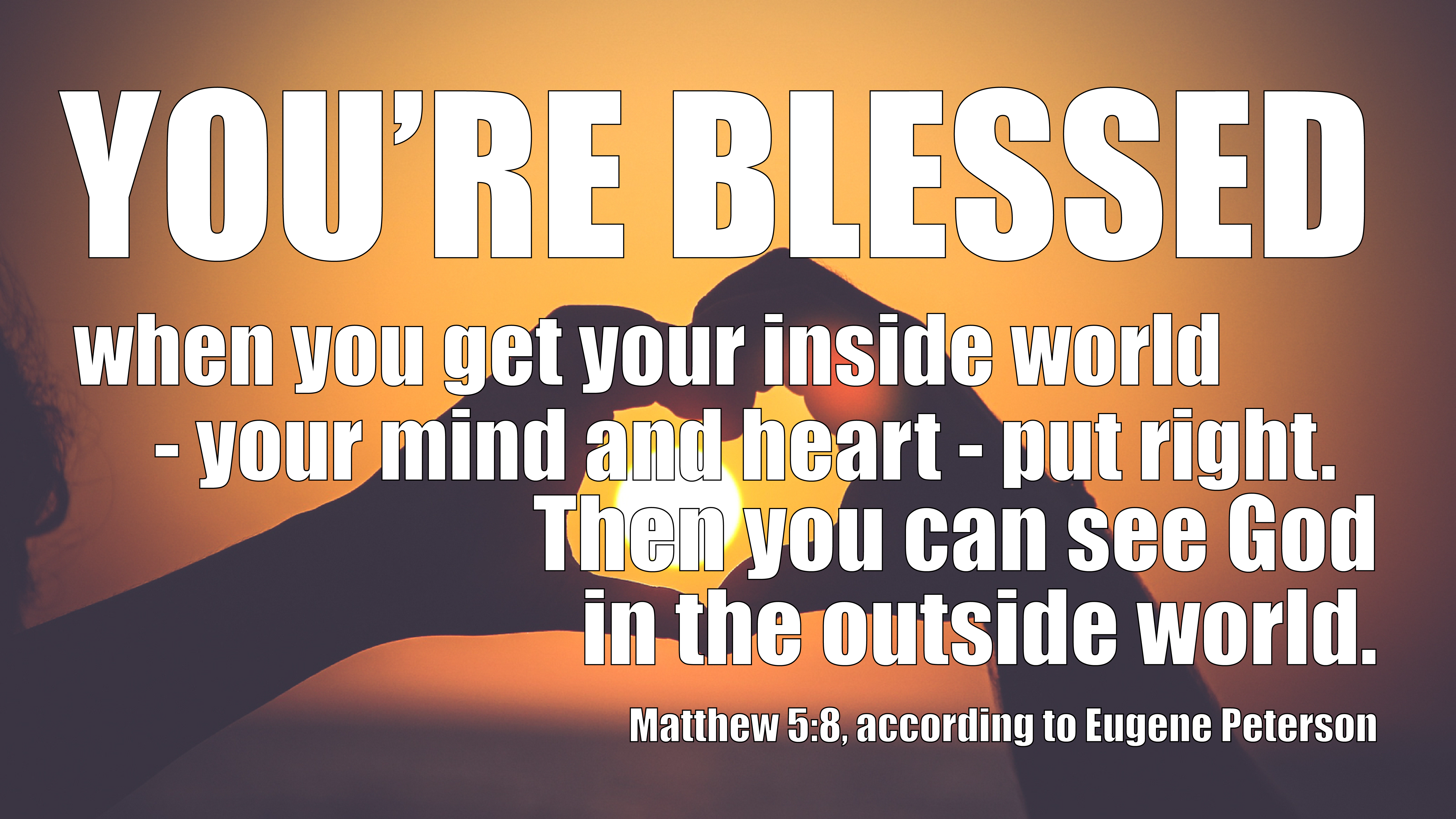
Exhausted. That’s how most people describe themselves these days. We’re discouragingly overwhelmed by the us-versus-them thinking we experience as hypocritical and tribalistic. This self-preservation doesn’t come from an innate sense of evil as much as it does from our most common habits, rejections, hurts, and fears of what might happen to us in the future. Such thinking is zero-sum, lip-service rooted in a world-view dictating that there must always be a winner and a loser. But Jesus talks of a different sort of life together (the kingdom of heaven).
Jesus presents the vision that to be a person of peace, love, and nonviolence (to be a person) is to be at peace within ourselves. For Jesus, and the worldview from which the Bible testimonies are written, the heart is the center of life, literally, figuratively, and spiritually. It’s the center of the circulation of our blood: the seat of life. That’s why we say that “someone with a heart of stone is dead.” Pure is a word that we associate automatically with sexuality or with naiveté. Yet biblically speaking the word, like heart, has a meaning that is physical, spiritual and ethical. It evokes precious metals refined by fire, vines pruned to bear fruit, cleanliness that prevents infection and disease, sincere faith, genuine integrity.
In the story from Mark Jesus describes the religious leaders as self-righteous fundamentalists concerned more with their public following than with sincere faith. Jesus condemns them for turning a deaf ear to the cries for help from family by claiming that their money is “corban”: intended for God alone. They look to their own comfort as opposed to looking within for the peace which transcends understanding, makes all things new, comes only from God.
Faith all too easily becomes like that of the Pharisees: on in which we think that faith is more of a stance, a dogmatic position, or adherence to a teaching. Yet Jesus talks about it as an inner journey. One in which our heart is ever-widened in a prayerful awakening that we might see more and more. We see who we are. We see who our neighbors are. We see who God truly is. Such vision is relational more than physical, born of baptism more than knowledge, one that grows more than is achieved.
Questions for the practice of Examen & Contemplation
- What strikes you in these passages?
- How do you need to be “purified of heart” in order to have your vision awakened and centered in Christ?
- The word Jesus uses in Mark 7 to talk of washing is baptism. How do you need to renew your baptism?
Engage the text on your own with the study sheet we use @CAPCOakland for our weekly study (PDF HERE]